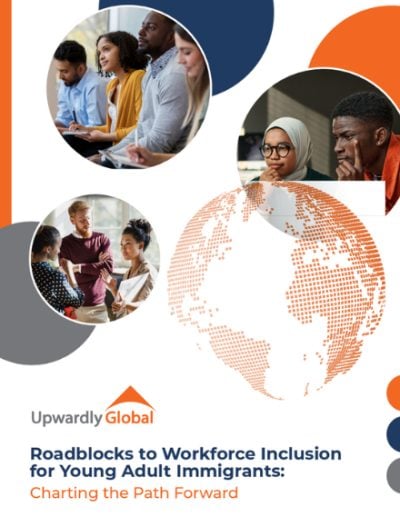What’s at Stake
The U.S. economy may lose out on hundreds of millions of dollars per year in underutilized immigrant talent. For immigrants under 30 years old whose careers still have decades to advance and expand, this lost potential is monumental.

Immigrant young adults represent nearly 10% of foreign-born individuals in America. Amid U.S. workforce shortages in high-demand industries, there is a strong case for public and private philanthropic investment to build immigrant workforce equity and economic mobility.
Young adults under 30 with immigrant backgrounds are eager to learn and acquire new skills but face cultural and systemic barriers on the path to quality employment. This report sheds light on the unique challenges and lived experiences of immigrant young adults seeking to attain economic mobility in the United States.
The report, produced with support from the Annie E. Casey Foundation, is based on the input of hundreds of immigrants. Researchers collected 207 survey responses and 10 hours of focus group data from 66 participants.
The data shows that young immigrants face five major roadblocks when navigating the U.S. labor market and pathway to self-sufficiency. These are:
To develop a successful model for immigrant inclusion, the study recommends:
Programs and policies that enable young immigrants to find quality jobs must be put into practice or risk employers losing hundreds of millions of dollars in underutilized immigrant talent.
The U.S. workforce is facing shortages in high-demand industries while nearly half of all immigrants hold a college degree. Removing barriers to employment for young immigrants creates greater equity while also helping to create a labor market that meets the needs of both employers and employees.
We hope you'll find value in this report. We’d love to get a little information from you, which we'll use to notify you about relevant new resources.